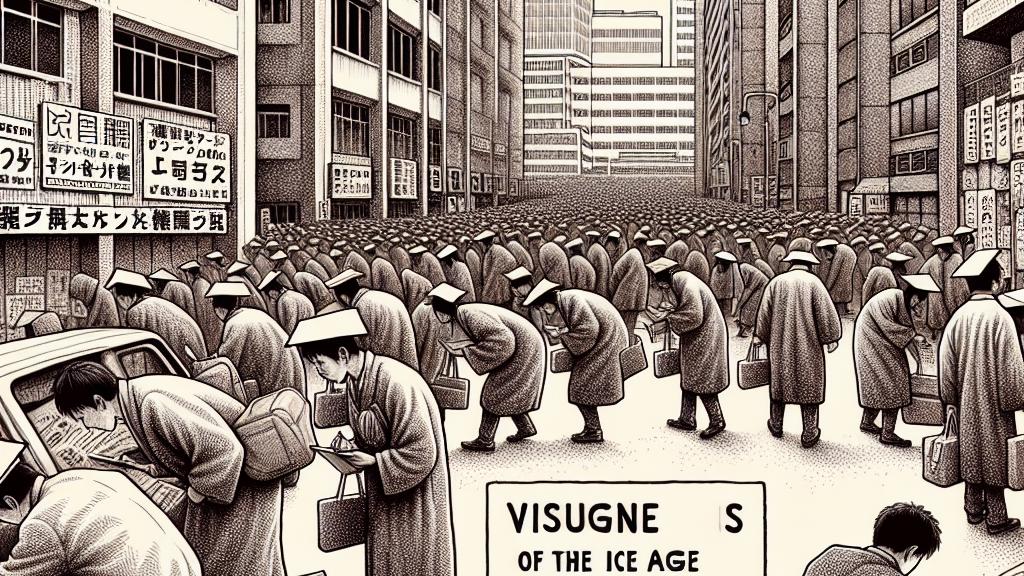Discussions on the Ice Age Generation and Political Parties
Overview
- Unpack the multifaceted struggles of the Ice Age Generation within Japan's socio-economic framework.
- Analyze the increasing alignment of this demographic with the Democratic Party for the People and Nippon Ishin.
- Explore the impactful changes on Japan's political landscape as their voices gain recognition.

The Ice Age Generation: Resilience Amidst Economic Turmoil
The Ice Age Generation, comprising individuals who sought employment during Japan's tumultuous economic landscape of the 1990s to early 2000s, has endured hardships that define their lived experience. Picture graduates stepping into a bleak job market where job opportunities dwindled while competition soared. Many faced the grim reality of submitting hundreds of applications, only to receive rejection after rejection. For instance, consider a recent university graduate who, despite excellent qualifications, spent years in low-wage, part-time jobs, often leading to feelings of hopelessness. This generation's resilience is not merely about survival; it reflects a broader struggle for stability and recognition in a society that had seemingly turned its back on them. Their experiences underscore the crucial need for political representation that addresses both their aspirations and concerns.
Political Affiliations: Charting a New Course for Representation
Amidst their growing discontent, the Ice Age Generation has increasingly found alignment with parties such as the Democratic Party for the People (DPFP) and Nippon Ishin. These parties have resonated with their dreams for transformation. For example, the DPFP's initiatives aimed at revitalizing social welfare have sparked hope among those who have felt abandoned by traditional politics. Moreover, Nippon Ishin positions itself as a reformist party that seeks to address local grievances with tangible solutions. Picture a community forum where issues like social security and health care are discussed, enabling this generation to voice their frustrations while actively shaping the political discourse. This burgeoning political activity signals a shift towards empowerment, as the Ice Age Generation begins to reclaim their agency and influence the political landscape.
Future Directions: Shaping Japan’s Political Evolution
As this generation continues to mobilize, its impact on Japan’s political arena could be profound. The call for change is echoing louder, urging political parties to listen and adapt. Imagine a future where parties not only acknowledge the unique issues faced by the Ice Age Generation but actively work to implement policies that foster economic stability and social equity. For instance, initiatives targeting job creation specifically tailored for this demographic could enhance their engagement and trust in the political process. Furthermore, as the Ice Age Generation pushes for fair representation, their demands could usher in meaningful reforms that reconcile the disparities they have faced. In this sense, the voices of the Ice Age Generation hold the potential to redefine Japan's socio-political narrative, emphasizing a collective vision for a more equitable and inclusive future.

Loading...